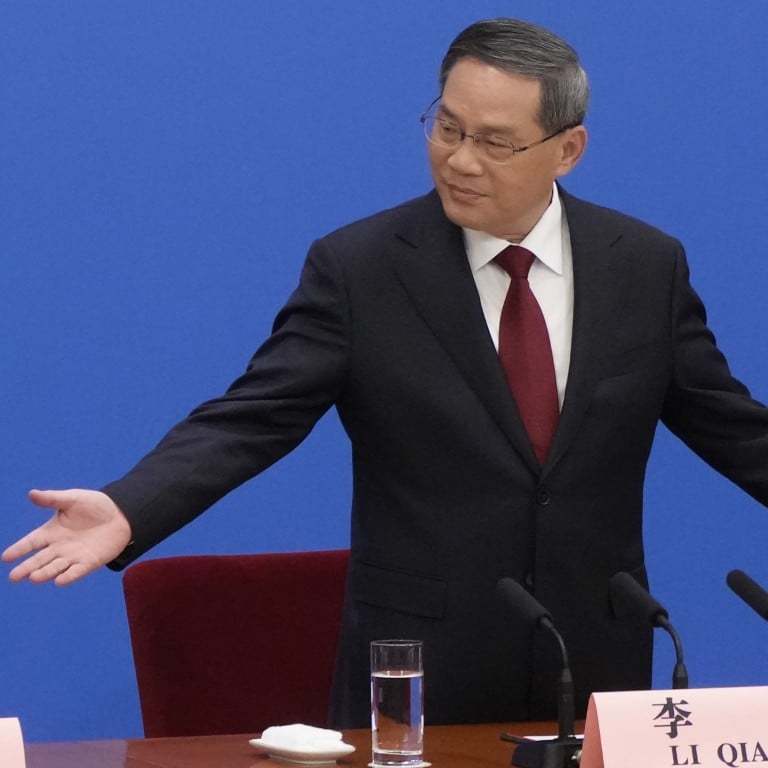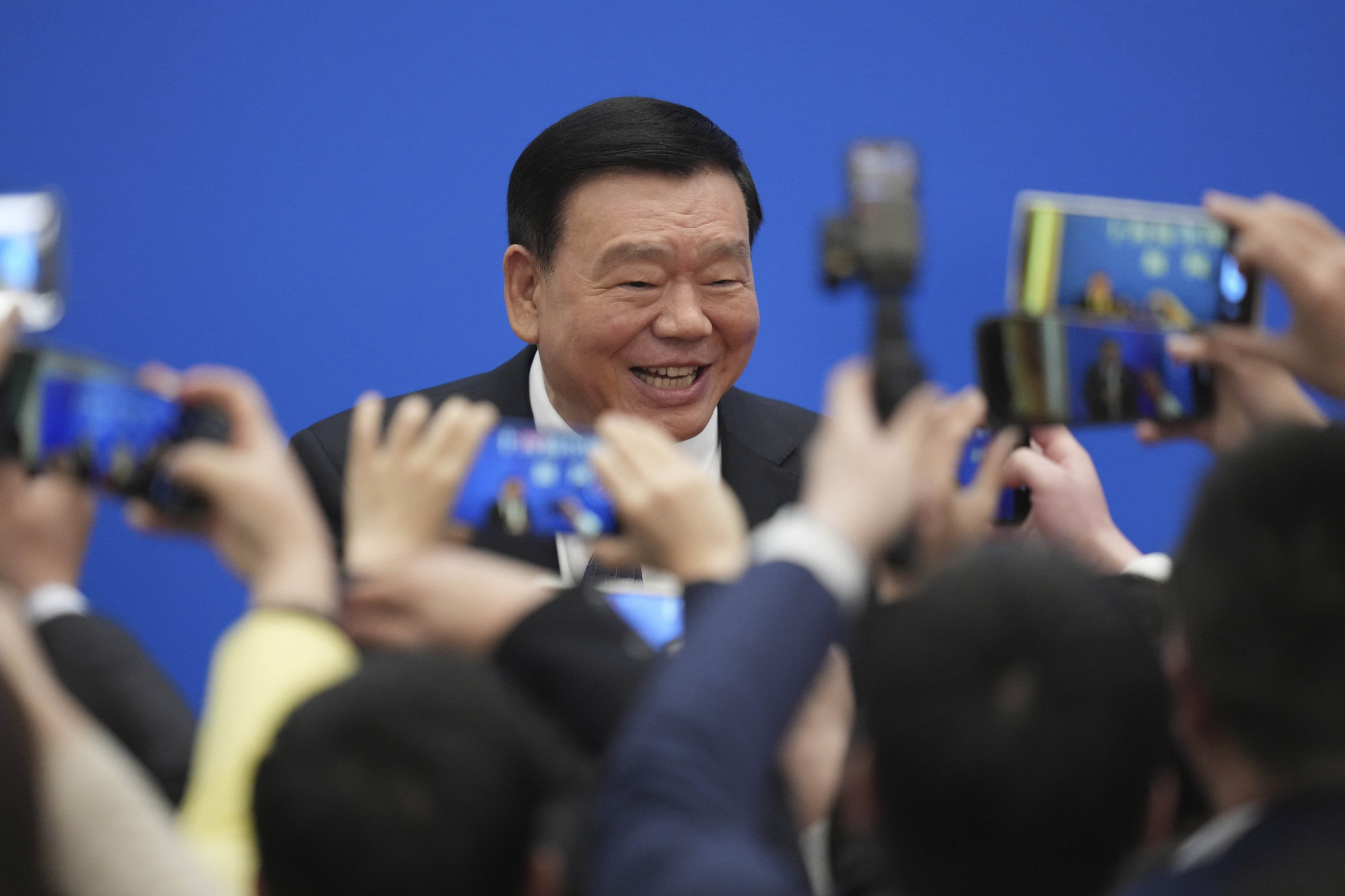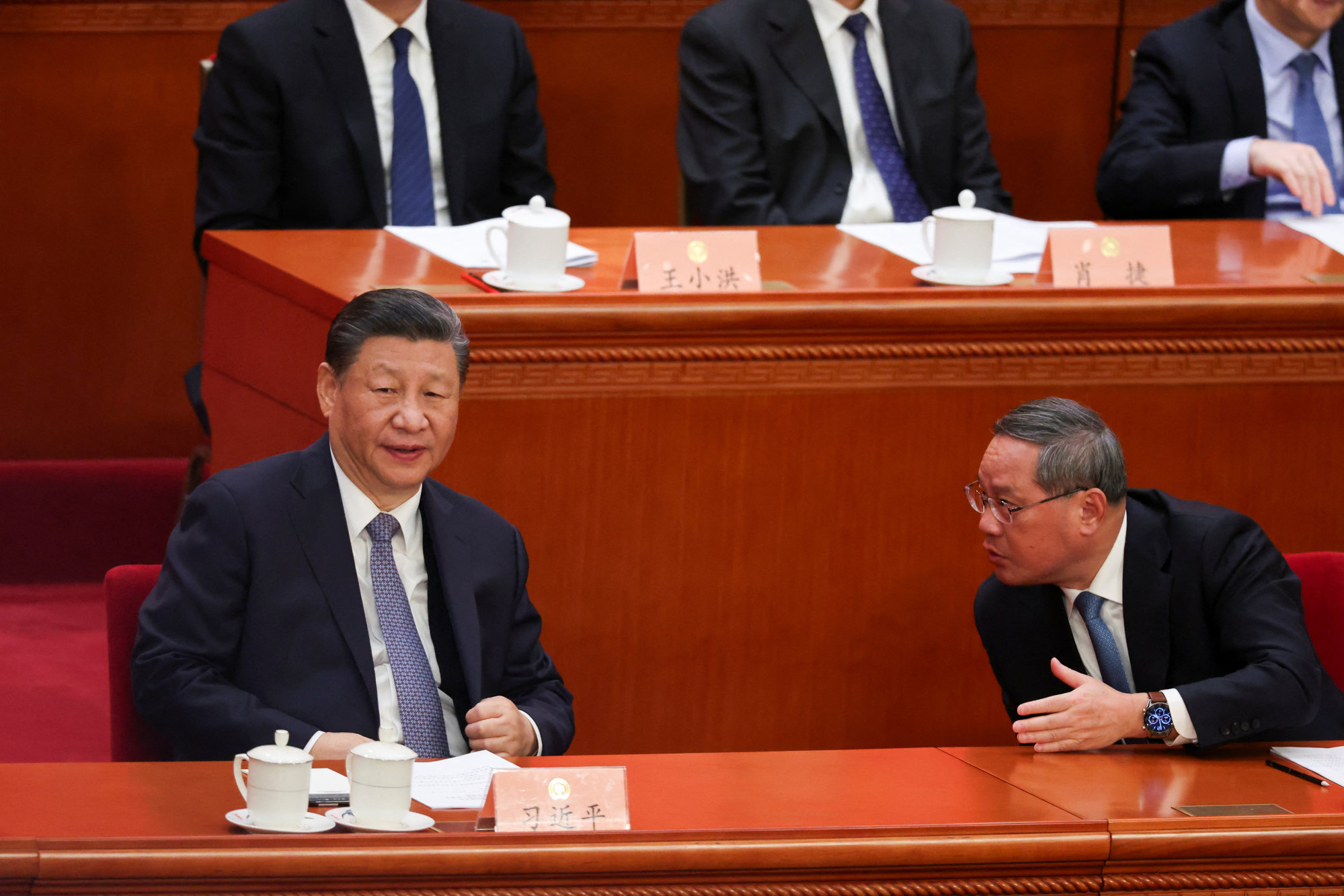
China’s premier won’t meet the press after ‘two sessions’ for first time in 3 decades
- Premier’s press conference will also be scrapped in future years unless there are exceptional circumstances
- It usually offers the outside world a chance to hear directly from a high-ranking official on policy directions
The press conference – first held in 1988 and established as a customary practice in 1993 – is one of the most anticipated events of the annual “two sessions”, when the top political advisory body and legislature meet.
It is one of the rare occasions when a top Chinese leader takes questions from local and international media. Those questions are often tightly scripted and chosen in advance, but it offers the outside world a chance to hear directly from a high-ranking official on policy directions.
In particular, it has been seen as a platform for China to indicate its diplomatic priorities, not only in terms of the questions selected but also which country’s media they come from.
But Lou said that after a review, the leadership had decided to scrap the press conference since it often overlapped with similar events during the two sessions.

“It should be said that society’s major concerns have been specifically addressed in the [government] reports,” Lou said on Monday. “They will be publicised so that the media and the public can learn about their content easily.”
Why China will avoid talking about US election during ‘two sessions’
Observers said that while the change might come as a surprise, it was in line with China’s political development.
“The party’s leadership has been firmly established over the past decade. The State Council’s role is now mainly about implementing the party’s decisions,” according to veteran China watcher Wang Xiangwei, a former editor-in-chief of the South China Morning Post.
“The role and status of the premier, who heads the State Council, is therefore adjusted accordingly.”
He said that was already reflected in arrangements for state leaders meeting the chief executives of Hong Kong and Macau on duty visits.
Previously the chief executives held separate meetings with the president and the premier. But last year they reported only to the president, with the premier sitting in on the meeting.
“It is also a reflection of Li Qiang’s pragmatism. He focuses on major policy directions, which are all clearly spelled out in his work report,” Wang said. “He doesn’t think an additional press conference is necessary as the ministers are in a better position to elaborate on detailed policies, and they will all have press conferences.”
But he said the Chinese leadership could bring back the practice in future if it was deemed necessary.
The ‘two sessions’: what to watch for during China’s biggest political event of the year
Another observer, who spoke on condition of anonymity, agreed it reflected the change in power dynamics in China.
“The premier’s job is now mainly to do with the economy and social affairs. However, the questions asked at the presser are usually about foreign affairs and China’s grand strategy,” the observer said.
The observer said Li could also have decided not to hold the press conference as a way to show loyalty to Xi, so that more focus is on the president.

But Wang said there could be a negative impact.
“This is still the only opportunity for a top Chinese leader to have live televised interaction with foreign media. Even though it is a highly scripted event, it’s a chance for everyone who is interested in China – particularly foreign investors – to hear directly from the Chinese leadership,” he said.
“This will be an opportunity missed for China to explain itself, and it may increase the perception of China’s lack of transparency. It will have a huge impact on China’s image to the outside world when it comes to openness.”
“[This] clearly shows the fundamental changes in China’s party-government relationships in the past few years,” he said.
The revised work rules state that the cabinet will closely follow instructions from the party leadership, and provisions related to government transparency were removed.
“It will have only taken a year from the revision of the internal work rules to the revision of the guiding law,” Wu said. “Li Qiang is certainly pushing this very hard to show his loyalty.”
Jens Eskelund, president of the European Union Chamber of Commerce in China, expressed regret that the premier’s press conference was cancelled.
“Transparency and engagement with international media are important for enabling the global audience to understand China’s priorities and its assessment of the domestic and global situation,” he said. “We hope the press conference will be reintroduced next year.”
David Lie Tai-chong, a Chinese People’s Political Consultative Conference member from Hong Kong, said he believed the press briefing was dropped as part of efforts to “streamline” the two sessions.
Additional reporting by Amber Wang and Natalie Wong


